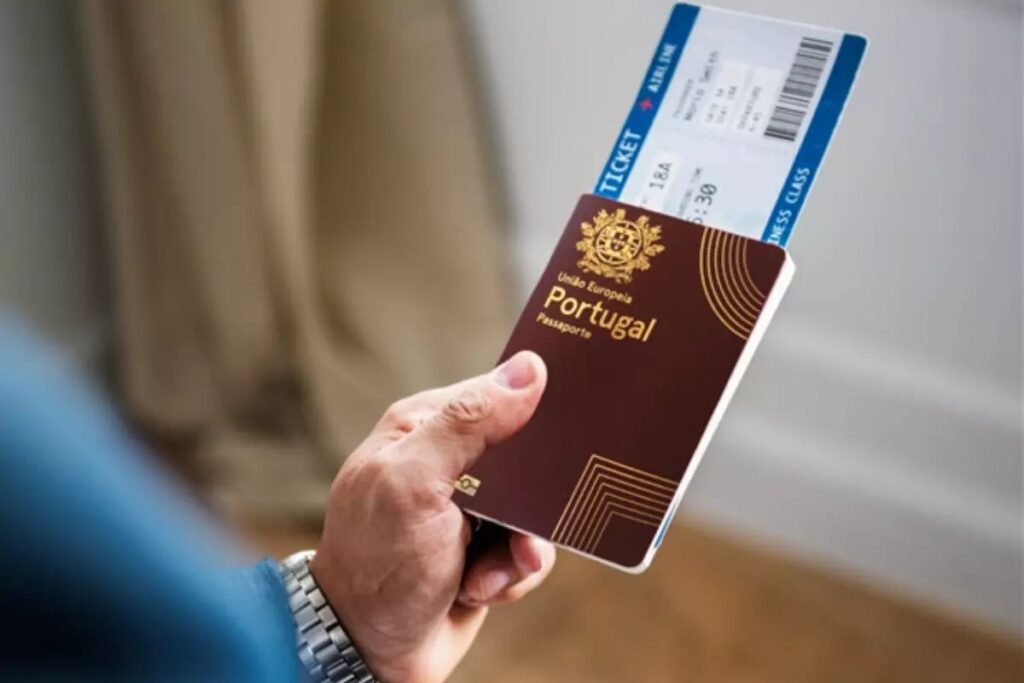In Portugal, officials are preparing to enhance immigration regulations, including a potential increase in the residency duration required for citizenship from 5 to 10 years. Stricter evaluations for family reunification are also anticipated as the government aims to place a premium on recruiting top-tier talent.
Portugal is gearing up to implement stricter immigration policies, which may complicate the process for foreign individuals to gain citizenship or reunite with family. The anticipated reforms are part of a wider governmental strategy to regulate migration patterns while emphasizing highly skilled labor.
Announcement of New Immigration Policy
On June 14, António Leitão Amaro, the Minister of the Presidency of the Council of Ministers, declared that the Nationality Law of Portugal will experience substantial changes. Although detailed information is scarce, the primary aim is to simplify the immigration process and facilitate the integration of foreign residents.
Anticipated Changes
1. Extended Residency Requirement for Citizenship
Presently, individuals can seek Portuguese citizenship following five years of lawful residency. With the suggested modifications, this duration might increase to ten years.
- The authorities are contemplating removing the waiting period for a residence permit request and its acceptance from the overall residency count.
- This could lead to a notable postponement in qualifying for citizenship.
2. Stricter Family Reunification Criteria
The Portuguese government is also set to implement stricter regulations regarding family reunification, particularly affecting migrants from non-EU nations. This is attributed to the limited capacity of public resources and the need for enhanced support for integration.
- New language skill requirements may be imposed on applicants.
- Highly skilled foreign professionals with essential competences may receive priority.
Consequences for CPLP Nationals and Brazilian Migrants
Portugal continues to be a significant destination for citizens from CPLP (Community of Portuguese-Speaking Countries), encompassing Brazil, Angola, Mozambique, and Cape Verde.
These countries share both historical and linguistic connections to Portugal, and their inhabitants have traditionally benefited from easier access to residency and employment permits in Portugal.
Nevertheless, the proposed limitations may have a distinct impact on the Brazilian population, which represents the largest group of foreigners in Portugal, many of whom come for job prospects and subsequently sponsor their relatives.
Emphasis on Attracting Skilled Workers
The administration has signaled its intent to encourage and retain highly qualified immigrants, particularly:
- International professionals with superior qualifications.
- Portuguese citizens returning to the nation after living abroad.
- Heirs of Portuguese citizens.
This transition aligns with Portugal’s economic aspirations, which strive to fill labor market voids without straining public services.
Political Context: A Fresh Mandate
The announcement arrives concurrently with Prime Minister Luís Montenegro commencing his new term on June 15. Reforming immigration policy was a focal point of his election campaign, and swift action is expected from the government to execute these measures.
Implications for Foreign Nationals
- Anticipate longer processing times for citizenship eligibility.
- Prepare for possible language examinations, particularly when applying for family reunification.
- Focus on skill enhancement, as Portugal is concentrating on attracting highly skilled or in-demand professionals.
While these reforms are not yet effective, foreign nationals already residing in Portugal or intending to relocate should remain informed regarding official updates.
Final Thoughts
The transformation in Portugal’s immigration system signifies a critical juncture for numerous foreign nationals, particularly those seeking citizenship or family reunification. With lengthier wait durations and more stringent requirements on the horizon, it is increasingly crucial to stay aware and ready.
As the government finalizes these initiatives, migrants and workers should carefully track any updates and consider obtaining professional advice on immigration when necessary.
Fonte: Travelo Biz


